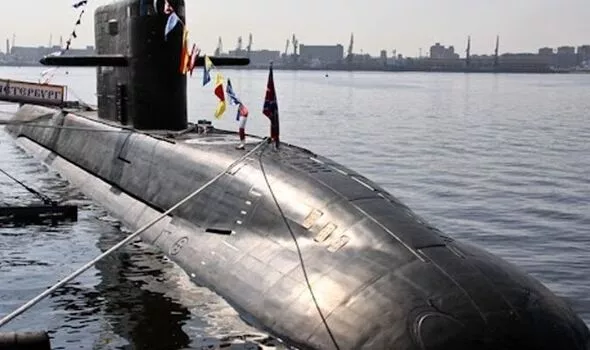The plane will be sent to the Arctic. This comes as Russian naval activity in the North Atlantic is said to have reached “Cold War levels.” The P-8 Maritime Patrol planes, which are being deployed as part of the United Kingdom’s new Arctic Strategy, are intended to “hunt” submarines.
The planes utilise specialised surveillance technologies, such as radar and an acoustic sensor system, to find submarines before notifying NATO warships.
They are also outfitted with torpedoes for use against subsurface targets.
The Arctic Strategy, which outlines the country’s military actions in the region for the next decade, was released during Defence Secretary Ben Wallace’s visit to Norway.
Mr Wallace came to the nation to witness Operation Cold Response, a military drill involving 30,000 NATO troops that is the largest cold-weather exercise in three decades.
The plan highlights new dangers and difficulties brought on by melting Arctic ice, which has made Russia “alert to the hazards connected with diminished sea ice cover on its northern flank.”
It went on to say that Russia considers the Arctic to be “strategically significant.”
According to the research, the government now conducts as many submarine patrols as the Soviet Union did during the Cold War.
Russia has also reactivated two Arctic naval outposts, Franz Josef Land and Kotelny Island, since 2016.
“While this activity is not in and of itself a violation of international law, it creates problems that influence the interests of the UK, our Allies and partners, and the residents of the Arctic, and to which we must be watchful and prepared to respond,” according to the plan.
According to a defence source, Russia was the driving force behind the militarization of the Arctic, and the UK and NATO intervened to uphold international law.
In 2008, Russia announced its own Arctic Strategy.
The final P-8 plane was sent to RAF Lossiemouth in January, replacing the defunct Nimrod maritime patrol aircraft.
In addition, the Arctic Strategy stated preparations for “cold weather combat training” in nations such as Norway and the United States.
“In addition to cold weather combat training in Norway, the UK will attempt to take advantage of further invitations and undertake cold-weather training on a regular basis in Canada, Finland, and the United States,” it stated.
“In support of these capabilities, UK Defence will look at ways to strengthen its cold-weather capacity, ensuring that Arctic-appropriate equipment, activity, environmental support, and infrastructure are all produced and maintained.”
Ben Wallace also mentioned China’s growing military capabilities in the Arctic in a statement.
“Melting sea ice in the Arctic provides both possibilities and challenges,” he said, adding that Russia is pursuing a more militaristic approach to the region and China is backing its projected Polar Silk Road with a range of infrastructure and capabilities with dual-use potential.
“As the region becomes more accessible, dangers from other parts of the world may flow over into the Arctic.”




















